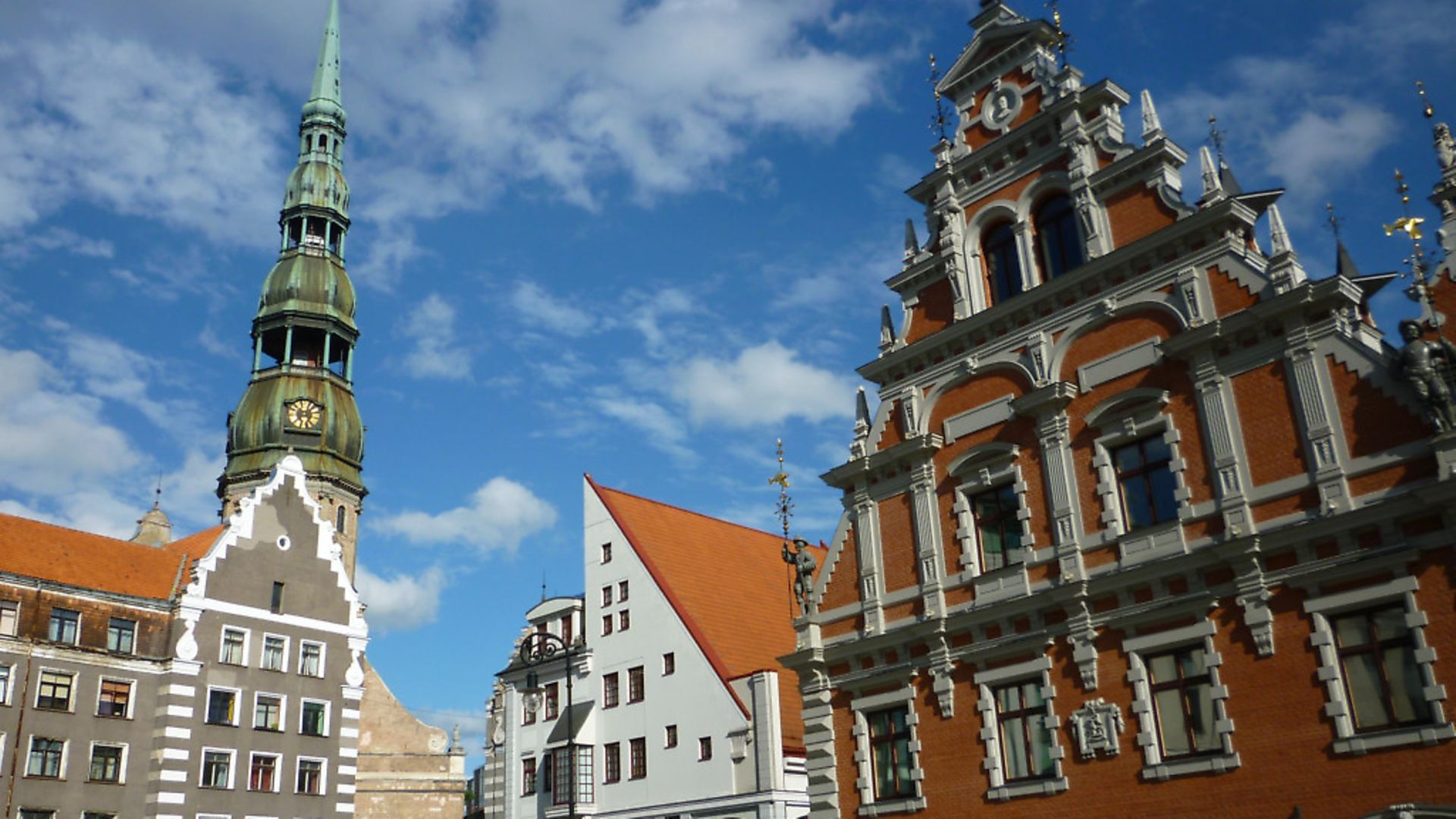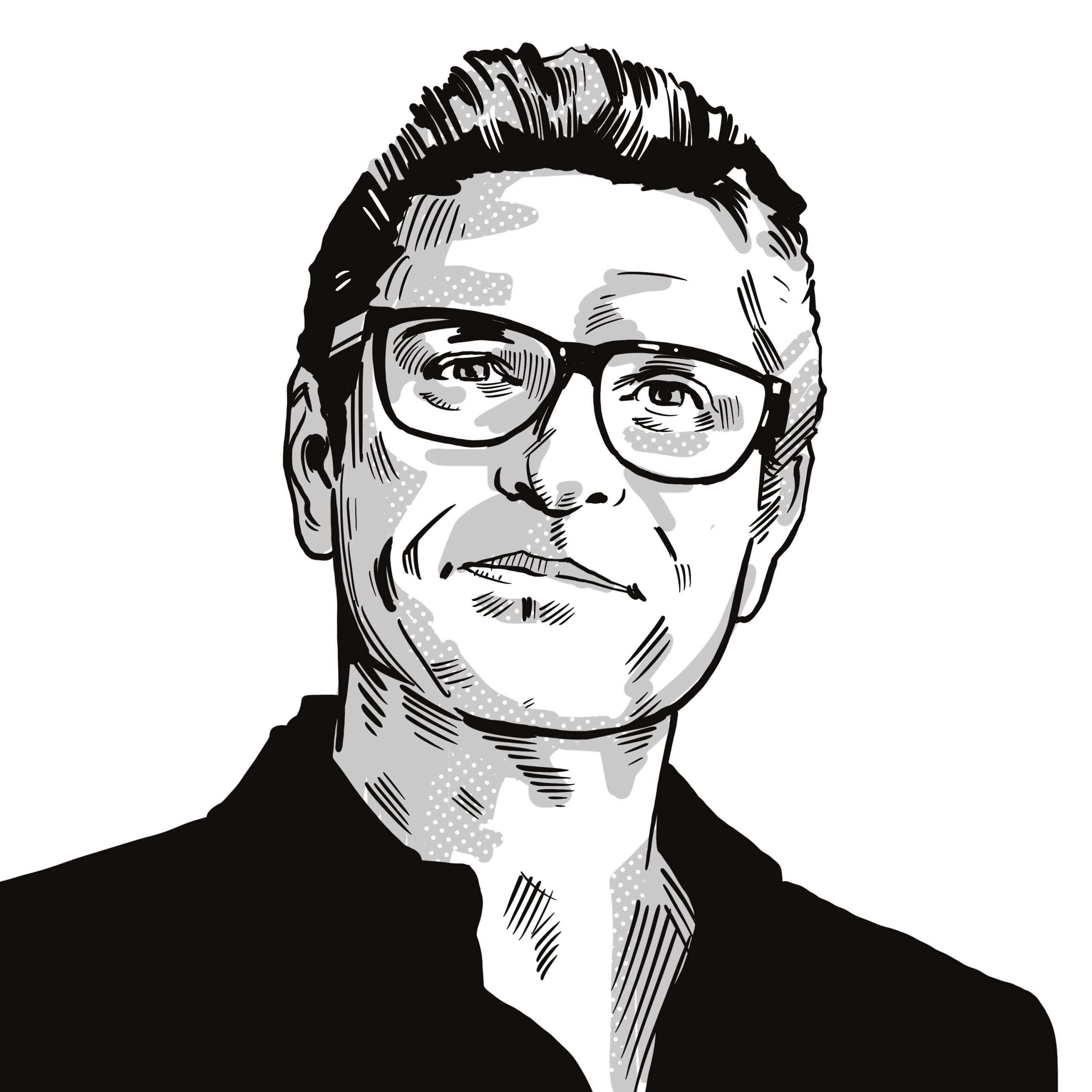
Britain’s departure from the EU has sparked enough anger at home. But, as Alastair Campbell writes, Brexit is giving our foreign friends sleepless nights as well.
RIGA: It says something about my old hyper-stressed, too-much-flying life that I cannot remember if I have ever been to Latvia before. I have a vague memory of having been here for a few hours, when I was seconded to NATO around the time of the Kosovo conflict; or was it pre-Latvian accession to the EU, when Tony Blair was doing one of his whistle-stop diplo-tours – if it’s Tuesday it must be Vilnius, or Tallinn, or somewhere? No disrespect is intended to the 1.96 million people who live here when I say honestly can’t remember.
I will remember this visit, though, not least because the weather is fantastic, the night light mesmerising, and I am seeing Riga for the stunning city that it is. Clean, bright; immaculately kept parks with flowers to make the heart sing; light on traffic, heavy on history, having been variously ruled by the Swedes, the Poles, the Soviets, the Russians and, of course, Hitler’s occupying Nazis. The city has a collection of statues to match capitals ten times the size.
It is very European, though maybe the 27 degree heat as the plane landed close to golden beaches was playing tricks with the mind, making it feel more like Barcelona than the Baltics. The sense of Russia is doubtless stronger in their long, sub-zero winters, when the fur hats and snow ploughs come out in force. Moscow is a ten-hour drive away, the Russian border two hours.
I was invited here to speak to a conference about reputation management. It is one of the joys of my life that having had many tons of newsprint dedicated to demolishing/demonising my reputation, I now get handsomely paid to travel all over the world, advising others about how to maintain a strong reputation in the modern media age. As I slip into the back of an airport transfer limo, or check into a luxury hotel, I sometimes think I should send a note of thanks to Paul Dacre and Co for helping to build my brand over the years. Fear not, the thought passes quickly.
Three words came up again and again at the event – namely Trump, Putin and Brexit. People all over the EU – Latvia joined in 2004 after a referendum the year before – are totally mystified by Brexit. They might understand the reasons, some of which – such as globalisation leaving some communities behind, and the sense of the pace of change being too fast – also explain the rise of Donald Trump. But to a man and woman, if the show of hands was anything to go by, my audience viewed Brexit as being bad for the UK, bad for the EU, and bad for Latvia too.
Not long before our own referendum (the one that took place almost two years before the prime minister established Cabinet working parties to establish what the Cabinet thought about post-Brexit Britain) I was in Denmark and Norway. I was struck by how vehement people were that if the UK left the EU, it would have detrimental consequences for them too, and how angry they were – like the Irish – that the Johnsons and Goves of the Leave campaign gave not a damn. Of course Denmark is a member of the EU, one often on the same side of arguments as the UK, and so the fear of losing one of the big players from the table is perhaps self-evident. But the Norwegians also worried about our departure for much the same reason as the Danes and indeed the Latvians. They want Britain to be strong, and they fear, unsurprisingly, that Brexit will weaken us, economically, politically, diplomatically and, if those trends are borne out, militarily too.
It would be wrong to say the Latvians live in permanent fear of their big scary neighbour, though war in Ukraine, and the annexation of Crimea, ‘put me in a state of steady moderate anxiety’, is how one of my conference hosts put it. Indeed, almost a third of the population are ethnic Russians. On Europe Day, May 9, one riverbank saw proud Latvians commemorating the end of the Second World War. On the other bank, Russians were celebrating Russian strength today. I had a haircut while there and the Riga-born barber told me ‘I am a Russian who lives in Latvia’. At the reception after my event, one woman passionately pro- the Putin regime tried with a charming smile to tell me that I should not be so naïve as to imagine that Britain was not capable of poisoning Sergei Skripal, or staging a chemical weapons attack in Syria to make Putin look bad.
She was very much in the minority though. In the main, the Latvians see themselves as European, Western, NATO. Indeed, the only time that Jeremy Corbyn’s name came up was when a questioner asked what had happened to Labour that ‘your party is now led by a Marxist who prefers Putin to NATO?’ I thought there might at least be a little ‘tut’ or a rebutting shake of the head from some in the audience, but no, that seemed to be the accepted view.
Their awareness of the UK opposition is a sign of how much Britain matters to the smaller countries of the EU. Even readers of the The New European would, I suspect, be hard-pressed to name opposition politicians in any European country, beyond perhaps Marine Le Pen and Geert Wilders. But that sense of a Labour leader ‘who prefers Putin to NATO’ has a real resonance here, for they find it hard to imagine how a UK government delivering a Brexit which is not exactly going according to plan, as Daniel Hannan is the latest Brextremist to admit, will survive at the next election. And a UK leader they see as ‘preferring Putin to NATO’ is a real worry.
My audience came mainly from politics, PR and media. I am not pretending they were talking about Labour’s foreign policy in bars and cafes. But they were talking in bars and cafes about Donald Trump, not least because he kept popping up on the television, as he does everywhere in the world right now, as his White House reality TV horror show moves from one unlikely episode to the next.
He stokes the same fear that lay behind the question about Corbyn. It is not that Trump ‘prefers Putin to NATO’, though there was a time when the US president seemed unable to utter a critical word about the man in the Kremlin, while he was also on record as suggesting NATO was obsolescent. That really does worry them here, and though he has since been critical of Putin, and less provocative about NATO, they know that Trump is a man driven more by whim, instinct and ego than he is by the rigorous analysis of the issue for America, let alone the impact on small countries like Latvia.
So the fear here about his tearing up the Iran deal relates less to what it says about the impact in the Middle East, than what it says about the very concept of ‘the West’ as founded on a strong alliance between the US and Western Europe. In previous episodes of the Trump reality show, Angela Merkel and Emmanuel Macron flew to Washington to urge him to think again about Iran. Unable to see the president, Boris Johnson went on Fox & Friends, the show Trump watches in preference to a briefing by US intelligence experts. None of it worked.
This is the shape of the Trump foreign policy to come. It is not just America First, but, to paraphrase Barry White, America First, Last and Everything, and screw the rest of you. That is the real worry here. If ‘the West’ no longer means what it did, because of the US turning inwards, then ‘Europe’ has to mean even more. And Europe without Britain, especially with regard to security, will feel a lot less significant and powerful than it did.
‘When Putin went into Ukraine, there was a lot of talking, lots of angst and anger around the world,’ said one politician here. ‘But in the end, he got away with it. If he decided to roll into Latvia, who is going to stand up for us? Trump? Don’t count on it. NATO, if America decides No? France and Germany? I just don’t know.’
And that is where fear comes from – ‘I just don’t know.’ Like Theresa May just doesn’t know how she is going to square the various circles swimming round her in-tray. Like Britain just doesn’t know what is going to happen in this Brexit process. But we do know that Trump is tearing up the rulebook on diplomacy and government. We do know that he is less concerned about the interests of Europe, and more ambivalent about NATO, than his predecessors. And we certainly know that Putin is very happy about that, because undermining and breaking up the international alliances and organisations that might stand up to him, or check Russia’s actions, is one of his main strategic goals.
When I asked which of those two leaders, Trump or Putin, has a global image closer to the one he wants and imagines for himself, the result was identical to the one on Brexit. 100%. 100% thought Putin was meeting his objectives better than Trump was meeting his. 100% thought Brexit was bad. Bad for us. Bad for them. Bad for the world.
Those three words that kept coming up – Trump, Putin, Brexit – are closely intertwined. Ask Putin. He knows. Ask a Latvian. They know too, and it worries them. Ask our foreign secretary. He probably knows too, and still doesn’t give a damn.









